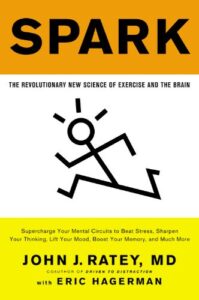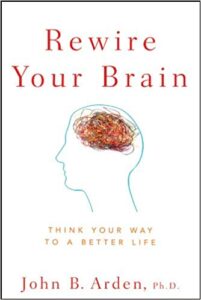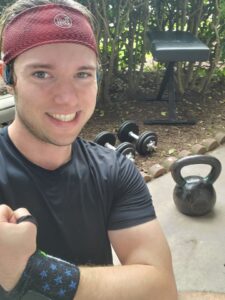Mental Health disorders (like anxiety, OCD, PTSD and depression) are prevalent in many different forms among all types of communities, however, CrossFit is helping to reduce the symptoms and impacts of these conditions with every single workout.
Especially in such a challenging time right now between social isolation, so many unknowns, added stress from pay cuts or job freezes and of course, the risk of illness, many are struggling with their anxieties and Mental Health.

research has proven that exercise can be just as beneficial as taking pills.
“In one study, researchers found that those who got regular vigorous exercise were 25 percent less likely to develop depression or an anxiety disorder over the next five years.”
From <https://adaa.org/living-with-anxiety/managing-anxiety/exercise-stress-and-anxiety>
“The improvement in brain function makes you feel better. “In people who are depressed, neuroscientists have noticed that the hippocampus in the brain—the region that helps regulate mood—is smaller. Exercise supports nerve cell growth in the hippocampus, improving nerve cell connections, which helps relieve depression,”
From <https://www.health.harvard.edu/mind-and-mood/exercise-is-an-all-natural-treatment-to-fight-depression>
Not only does CrossFit help you get a boost to your endorphins to physically help improve mental health, but research has shown how beneficial group exercise is on decreasing stress, anxiety and depression!
Right now, this can include our Virtual Group Classes, joining our community online for live-video workouts and getting the chance to receive coaching on your movements as well as connect with others.
“Group exercise participants showed significant improvements in all three quality of life measures: mental (12.6 percent), physical (24.8 percent) and emotional (26 percent).”
From <https://www.sciencedaily.com/releases/2017/10/171030092917.htm
A recent article in Men’s Health featuring CrossFit’s Founder, Greg Glassman, also mentioned
“Nearly half of Americans report feeling lonely, according to research from Cigna. Scientists at Brigham Young discovered that lonely people were 26 percent more likely to die across seven years, making social isolation as bad for you as obesity…
…Now picture a CrossFit box [or Online Group Class]…A group of 10, 15, up to 50 people exercise together. They encourage each other through the same workout, personal bests are posted on a whiteboard, no earbuds in or cell phones out.
“CrossFit moved strength training from an isolated experience to a communal one,” says Casper ter Kuile, a researcher at the Harvard Divinity School who has studied CrossFit.”
Read more: From <https://www.menshealth.com/health/a23663806/greg-glassman-crossfit-health/>
You can also read more about the positive impacts of CrossFit classes on mental health in this article written for the CrossFit Journal, she wrote,
“Depressed, constantly anxious, overwhelmed, irritated and unable to relax or enjoy anything, I made the decision to go to an on-ramp class at a local CrossFit box.
To be honest, my goal when walking into that first class on July 4, 2014, was to make it through without crying and without letting on that something was wrong. After I clumsily tried to learn new skills, used a barbell for the first time and did an extremely modified WOD designed for beginners, something unexpected happened.
For the first time in weeks I felt like I could breathe. The weight on my chest had let up. My body was so spent from the workout, muscles shaking, that I was finally able to do what I had been failing to do for weeks: relax. It felt like all the blood seeped from my brain to my muscles and left me without enough power to think.
It was incredible.”
Physical activity is undoubtedly important for improving mental health and creating a healthy life. However, you need to balance exercise with restoration practices too in order to reap as many benefits as possible! If trying to get 60 minute workouts in 5 days per week is adding more stress into your life, then whatever exercise you do get in each day likely will not have as much of a positive impact.
Working out should be prioritized but not another source of anxiety for you. Flip between days of high intensity exercise and days of slow yoga-flow type movements, meditation and breathing. Most people can do well with scheduling a workout into their day but then let the recovery-type sessions get pushed to the back-burner…keep those sessions as firmly scheduled as your workout sessions! Both will be equally important to building your “mental health muscle” in challenging times.
Getting started can feel like the hardest part,especially on top of other limiting thoughts and beliefs, but even just doing ten minutes of activity today can help move you into a better mentality and promote a happier, healthier life! Along with Virtual Group Classes, we also offer Customized Coaching to supply you with individualized workouts, accountability and connection to help you along your fitness journey.
For more resources, check out some books recommended by our coaches and members!

This book details the connection between exercise and the brain on so many levels and the positive impact on mental health, chronic diseases, and so much more!





